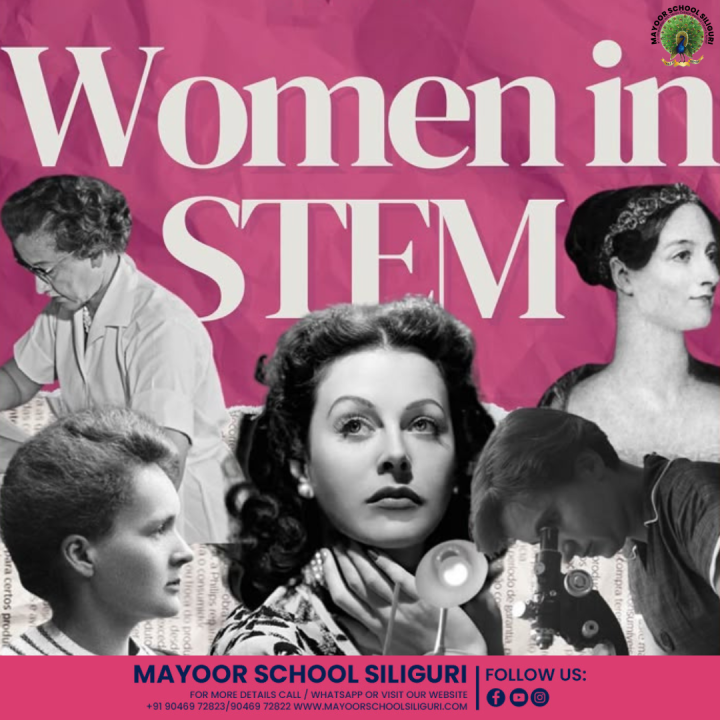
As Dr. Janaki Ammal, India’s pioneering botanist, who revolutionized sugarcane and plant cytogenetics, once reflected, "A scientist should be free from the shackles of gender discrimination. Science is for those who seek the truth." It is this very truth that the world must embrace— that intelligence knows no gender, and the pursuit of knowledge is the rightful inheritance of all. Science, long considered the dominion of a selected few, has been revolutionized by the indomitable spirit of women who defied convention, shattered barriers, and carved an indelible mark in the annals of history. The pursuit of knowledge is boundless, and yet, for centuries, systemic biases impeded the intellectual journeys of brilliant female minds. Today, the landscape is changing, thanks to the pioneers who persevered, making science more inclusive and aspirational for young girls worldwide. As Marie Curie, the first woman to win a Nobel Prize, profoundly stated, "One never notices what has been done; one can only see what remains to be done." The torchbearers of scientific inquiry have illuminated the path for future generations, urging them to push boundaries and redefine possibilities. India, a land of prodigious intellect and scientific curiosity, has produced remarkable women scientists who have redefined research and technological advancements. Ritu Karidhal, often referred to as the 'Rocket Woman of India,' played a pivotal role in ISRO’s Mars Orbiter Mission (Mangalyaan), an achievement that placed India among the elite spacefaring nations. "The sky is not the limit; our imagination is," she asserts, instilling a spirit of boundless aspiration in young girls. Dr. Tessy Thomas, India’s first woman scientist to head a missile project, spearheaded the Agni-IV and Agni-V missile programmes, demonstrating unparalleled prowess in defense technology. Her journey from a small town in Kerala to leading India’s missile programme is an inspiration we should look upon.. Another exemplary figure is Dr. Asima Chatterjee, a pioneering organic chemist whose groundbreaking research in medicinal chemistry led to the development of anti-epileptic and anti-malarial drugs. She became the first Indian woman to earn a Doctorate in Science from an Indian university, a feat she accomplished with resolute dedication. "I wish to contribute something to my motherland," she once said, embodying the spirit of service and scientific excellence. Throughout history, women have contributed significantly to scientific advancements, often without due recognition. Ada Lovelace, the world's first computer programmer, envisioned a future dominated by machines that could compute beyond numbers. Rosalind Franklin's meticulous work with X-ray diffraction paved the way for the discovery of DNA’s double-helix structure, a feat often overshadowed by the Nobel Prize awarded to Watson and Crick. "Science and everyday life cannot and should not be separated," Rosalind Franklin once remarked, emphasizing the omnipresence of scientific thought in our daily lives. The astronomical contributions of Annie Jump Cannon, who classified over 350,000 stars, and Katherine Johnson, whose orbital calculations ensured the success of NASA’s Apollo missions, exemplify the critical role of women in STEM (Science, Technology, Engineering, and Mathematics). Their perseverance and intellect continue to inspire young girls to dream beyond societal limitations. Despite progress, gender disparity in STEM fields remains a formidable challenge. UNESCO reports that women constitute only 30% of the global scientific workforce. The underrepresentation of women in leadership roles, coupled with deeply ingrained societal stereotypes, discourages young girls from pursuing scientific careers. The need of the hour is mentorship, equal opportunities, and policies that promote inclusivity. Dr. Kalpana Chawla, the first Indian-born woman in space, famously said, "The path from dreams to success does exist. May you have the vision to find it, the courage to get on to it, and the perseverance to follow it." Her words encapsulate the essence of resilience and ambition that should be instilled in young girls aspiring to enter scientific domains. Empowering young girls in STEM requires a multi-faceted approach: early exposure to scientific fields, hands-on learning experiences, and visibility of female role models. Programmes such as India’s Vigyan Jyoti, which encourages schoolgirls to pursue STEM careers, and global initiatives like the L’Oréal-UNESCO Women in Science Awards serve as beacons of hope for an equitable future. As Dr. Janaki Ammal, India’s pioneering botanist, who revolutionized sugarcane and plant cytogenetics, once reflected, "A scientist should be free from the shackles of gender discrimination. Science is for those who seek the truth." It is this very truth that the world must embrace— that intelligence knows no gender, and the pursuit of knowledge is the rightful inheritance of all. The journey of women in science is one of triumph over adversity, of breaking free from antiquated shackles, and of daring to dream beyond the stars. The stories of these remarkable scientists serve as a clarion call for young girls worldwide to take up the mantle of discovery and innovation. In the words of Dr. Gagandeep Kang, India’s foremost virologist, "Science is a way of thinking, a way of interrogating the universe." May this spirit of inquiry, courage, and perseverance continue to propel young minds toward a future where scientific brilliance knows no bounds.
Read More Article: Summer Activities to Keep Students Entertained and Learning Indian Women Scientists: Pioneers of Progress
Women Who Changed the Course of Science
Breaking Barriers and Encouraging the Next Generation
The Future is Female: